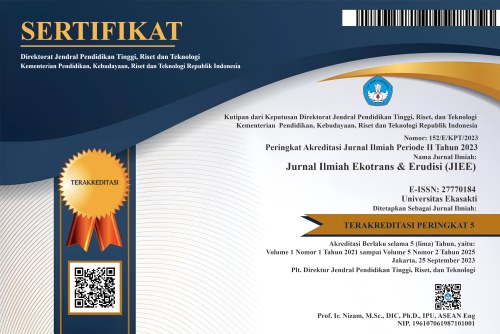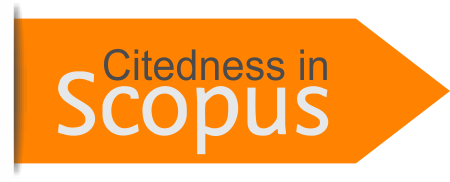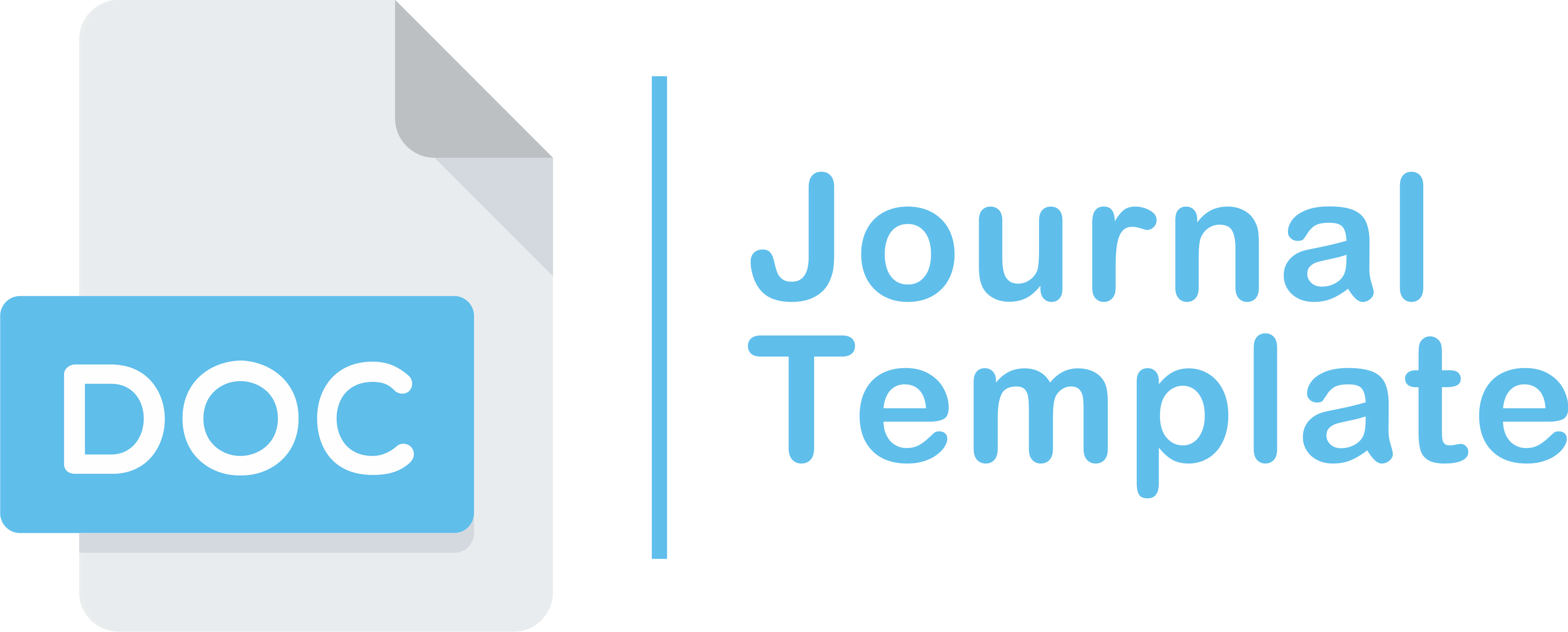Systematic Literature Review: Implementasi Prinsip-prinsip Administrasi Keuangan di Indonesia
DOI:
https://doi.org/10.69989/gajx9g32Kata Kunci:
Systematic Literature Review, Implementasi, Administrasi KeuanganAbstrak
Sebuah tinjauan sistematis dari literatur administrasi publik tentang implementasi prinsip-prinsip administrasi keuangan publik di Indonesia dilakukan dengan maksud untuk mengklasifikasikan, meiringkas, dan mengungkapkan efektivitas pengendalian anggaran, pengaruh penerapan anggaran berbasis kinerja, kualitas sumber daya manusia, aspek akuntabilitas publik, pencapaian kinerja anggaran dan transparansi dalam mencapai tujuan anggaran secara efetif dan efisien di sektor publik. Metode yang digunakan dalam penelitian ini adalah Metode Systematic Literature Review (SLR). Metode SLR digunakan untuk mengidentifikasi, mengkaji, mengevaluasi, dan menafsirkan semua penelitian yang tersedia dengan bidang topik fenomena yang menarik, dengan pertanyaan penelitian tertentu yang relevan. Dengan penggunaan Metode SLR dapat dilakukan review dan identifikasi jurnal secara sistematis, yang pada setiap prosesnya mengikuti langkah-langkah atau protokol yang telah ditetapkan. Adapun Jumlah artikel yang ditemukan sebanyak 56 artikel dengan karakteristik sesuai target penelitian, kemudian melalui proses screening diambil 30 artikel, setelah itu tahapan selanjutnya kriteria inklusi eksklusi sehingga ditemukan 25 artikel untuk selanjutnya dilakukan review. Hasil penelitian menunjukkan bahwa platform yang dominan digunakan dalam pengembangan sistem informasi adalah berbasis website sedangkan metode dominan digunakan dalam menyelesaikan pengembangan sistem informasi adalah metode terstruktur.
Unduhan
Referensi
Adhitya Wulanata Chrismastianto, I. (2017). Analisis swot implementasi teknologi finansial terhadap kualitas layanan perbankan di indonesia. Jurnal Ekonomi Dan Bisnis, 20(1), 133–144. https://core.ac.uk/download/pdf/190864220.pdf
Binawati, E. (2015). Implementasi Anggaran Berbasis Kinerja dan Akuntabilitas Sektor Publik Studi pada Pemerintah DIY. Wahana, 18(1), 1–19.
Danila, O., Ibrahim, R., & Abdullah, S. (2019). Analisis Determinan Implementasi Anggaran Berbasis Kinerja Dalam Penyusunan Anggaran Pendapatan Dan Belanja Satuan Kerja Perangkat Kabupeten (Skpk) Di Kabupaten Bener Meriah, Aceh. Jurnal Perspektif Ekonomi Darussalam, 4(1), 82–94. https://doi.org/10.24815/jped.v4i1.10925
Firmansyah, A. (2018). Implementasi Pengelolaan Keuangan Pada Desa Rawa Burung Kabupaten Tangerang, Banten. Sereal Untuk, 51(1), 51. https://doi.org/10.22236/agregat
Harianto, D., Kennedy, & Zarefar, A. (2021). Pengaruh Kejelasan Sasaran Anggaran , Pengendalian Akuntansi, Sistem Pelaporan Dan Pemanfaatan Teknologi Informasi Terhadap Akuntabilitas Kinerja Instansi Pemerintah Daerah (Akip) (Studi Pada Organisasi Perangkat Daerah Kabupaten Rokan Hilir). Jurnal Aplikasi Akuntansi, 6(1), 122–139. https://doi.org/10.29303/jaa.v6i1.111
Hermanto, F. T. W., Widianto, A., & Aryanto, A. (2021). Pengaruh Akuntabilitas, Transparansi, dan Pengawasan Terhadap Kinerja Anggaran dengan Konsep Value For Money pada Badan Pengelolaan Pendapatan Daerah (Bappenda) Kabupaten Tegal. Owner, 5(2), 502–512. https://doi.org/10.33395/owner.v5i2.416
Kitchenham, B., & Charters, S. (2007). Guidelines for performing systematic literature reviews in software engineering.
Laoli, V. (2019). Pengaruh Akuntabilitas dan Transparansi terhadap Kinerja Anggaran Berkonsep Value of Money pada Pemerintah Kabupaten Nias. Owner, 3(1), 91. https://doi.org/10.33395/owner.v3i1.108
Merawati, L. K. (2019). Budgetary Goal Characteristics Dan Transparansi Serta Pengaruhnya Terhadap Kinerja Anggaran Dan Kinerja Manajerial. Widya Akuntansi Dan Keuangan, 1(1), 44–57. https://doi.org/10.32795/widyaakuntansi.v1i1.246
Ningrum, A., Djamhuri, A., & Prihatiningtyas, Y. W. (2017). New Institutional Theory: Implementasi Anggaran Berbasis Kinerja. Journal of Research and Applications: Accounting and Management, 2(2), 107. https://doi.org/10.18382/jraam.v2i2.77
Octariani, D., Akram, A., & Animah, A. (2017). ANGGARAN BERBASIS KINERJA, SUMBER DAYA MANUSIA, DAN KUALITAS ANGGARAN SKPD (Suatu Pengujian Struktural). Riset Akuntansi Dan Keuangan Indonesia, 2(1), 27–41. https://doi.org/10.23917/reaksi.v2i1.3621
Purnamasari, P. (2018). PENGARUH PENERAPAN ANGGARAN BERBASIS KINERJA TERHADAP KINERJA KEUANGAN (Penelitian Pada Dinas Bina Marga Provinsi Jawa Barat: Balai Pengelolaan Jalan Wilayah Pelayanan V). Jurnal Edukasi (Ekonomi, Pendidikan Dan Akuntansi), 5(2), 157–164. https://doi.org/10.25157/je.v5i2.964
Radjenovi?, D., Heri?ko, M., Torkar, R., & Živkovi?, A. (2013). Software fault prediction metrics: A systematic literature review. Information and Software Technology, 55(8), 1397–1418.
Siddaway, A., Wood, A. M., & Hedges, L. V. (2019). How to Do a Systematic Review?: A Best Practice Guide for Conducting and Reporting Narrative Reviews , Meta-Analyses , and Meta-Syntheses (Issue January). https://doi.org/10.1146/annurev-psych-010418-102803
Trisna, N., & Marefanda, N. (2018). Implementasi Akuntabilitas Terhadap Pengelolaan Anggaran Di Dewan Perwakilan Rakyat Kabupaten Aceh Barat. Jurnal Public Policy, 3(1), 1–12. https://doi.org/10.35308/jpp.v3i1.160
Unterkalmsteiner, M., Gorschek, T., Islam, A. K. M. M., Cheng, C. K., Permadi, R. B., & Feldt, R. (2011). Evaluation and measurement of software process improvement—a systematic literature review. IEEE Transactions on Software Engineering, 38(2), 398–424.
Unduhan
Diterbitkan
Terbitan
Bagian
Lisensi
Hak Cipta (c) 2022 Acil Erbara, Muhammad Takdir (Author)

Artikel ini berlisensiCreative Commons Attribution-ShareAlike 4.0 International License.
Copyright Notice
An author who publishes in the journal "Jurnal Ilmiah Ekotrans & Erudisi" agrees to the following terms:
Author retains the copyright and grants the journal the right of first publication of the work simultaneously licensed under the Creative Commons Attribution-ShareAlike 4.0 License that allows others to share the work with an acknowledgement of the work's authorship and initial publication in this journal
Author is able to enter into separate, additional contractual arrangements for the non-exclusive distribution of the journal's published version of the work (e.g., post it to an institutional repository or publish it in a book) with the acknowledgement of its initial publication in this journal.
Author is permitted and encouraged to post his/her work online (e.g., in institutional repositories or on their website) prior to and during the submission process, as it can lead to productive exchanges, as well as earlier and greater citation of the published work (See The Effect of Open Access).
All materials in this site are protected by the law. It is prohibited to quote a part of or all of this website contents for commercial purposes without the permission or consent of the editors.
If anyone finds one article or more in this journal violate or potentially violate one’s copyrights, please report to us through e-mail of Principle Contact.
Legal-formal aspects of accessing any information and manuscript in this journal website refer to the provision of license Creative Commons Attribution-Share Alike (CC BY-SA). Read more about the Creative Commons Attribution-ShareAlike 4.0 Licence here: https://creativecommons.org/licenses/by-sa/4.0/.
All information available in 'Jurnal Ilmiah Ekotrans & Erudisi' is academic in nature. 'Jurnal Ilmiah Ekotrans & Erudisi' is not responsible for loss due to the abuse of information in the website.
Information
Notice about change in the copyright policy of the journal 'Jurnal Ilmiah Ekotrans & Erudisi' : "From Volume 1, Nomor 1 onwards the copyright of the article published in the journal 'Jurnal Ilmiah Ekotrans & Erudisi' will be retained by the author"
Privacy Statement
The names and email addresses entered in this journal site will be used exclusively for the stated purposes of this journal and will not be made available for any other purpose or to any other party.




























